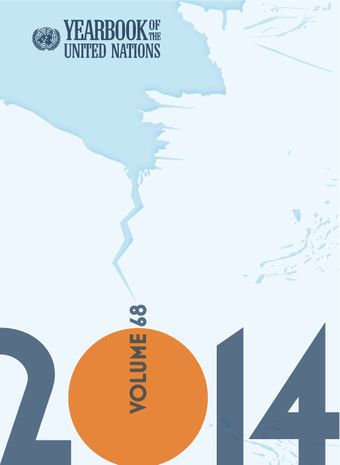Development policy and international economic cooperation

- Author: United Nations
- Main Title: Yearbook of the United Nations 2014 , pp 935-1027
- Publication Date: October 2019
- DOI: https://doi.org/10.18356/be2ed91d-en
- Language: English
In 2014, the global economy continued to expand at only a moderate estimated pace of 2.6 per cent. Recovery was hampered by new challenges, including a number of unexpected shocks, such as the heightened geopolitical conflicts in different parts of the world. Most economies had seen a shift in gross domestic product growth to a noticeably lower path compared to pre-crisis levels, raising the spectre of longer-term mediocre economic growth. In developing countries and economies in transition, growth rates had become more divergent during the year, with a sharp deceleration in a number of large emerging economies, particularly in Latin America and the Commonwealth of Independent States. At the same time, inequality within countries had increased markedly, and global inequality remained very high. Public policy actions by national Governments and other stakeholders were an important starting point for tackling and reducing inequality, and policy frameworks for reducing inequality needed to be designed and implemented in accordance with country-specific circumstances. At the United Nations, accelerating progress towards achievement of the Millennium Development Goals (mdgs), as well as steps for advancing the development agenda beyond 2015, were major focus areas in development policy and international economic cooperation.
-
From This Site
/content/books/9789210578523s009-c001dcterms_title,dcterms_subject,pub_keyword-contentType:Journal -contentType:Contributor -contentType:Concept -contentType:Institution105

